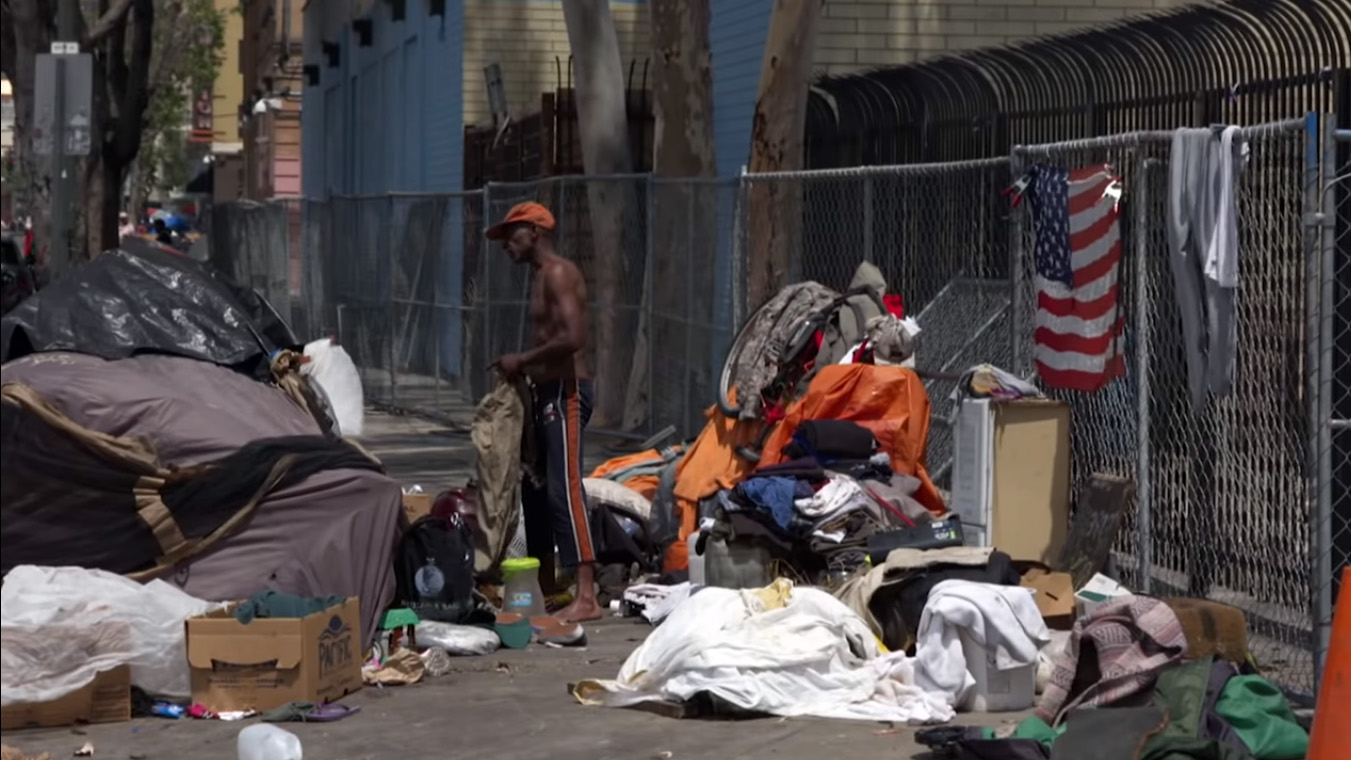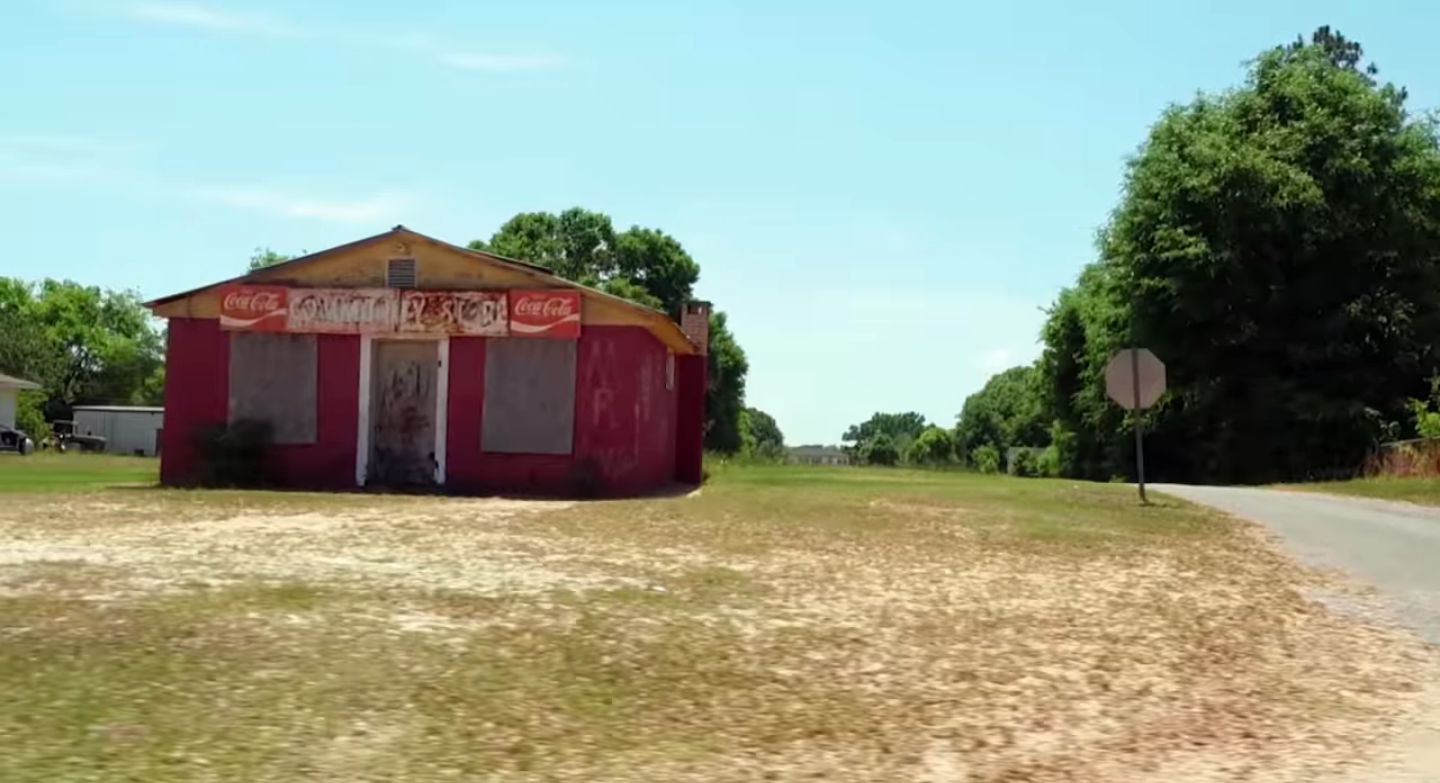
More than 18 million Americans live in "extreme poverty," according to a report from the United Nations, which ranked poverty in the U.S. alongside some of the poorest areas in the world. The UN Special Rapporteur for Extreme Poverty paid a visit to the U.S. last year, drawing worldwide attention to his findings. NewsHour Weekend Special Correspondent Simon Ostrovsky followed in his footsteps to report from Lowndes County, Alabama. This is part of an ongoing series of reports called "Chasing the Dream," which reports on poverty and opportunity in America, and is supported in part by the Pulitzer Center on Crisis Reporting
SIMON OSTROVSKY: This is Philip Alston, the United Nations point man on poverty. His job usually involves visiting the world's least developed countries. But earlier this month Alston flipped the script.
PHILIP ALSTON: My report demonstrates that growing inequality, and widespread poverty which afflicts almost one child out of every five, has deeply negative implications for the enjoyment of civil and political rights.
SIMON OSTROVSKY: The country he's talking about might not be what you'd expect. It's the United States of America. And his criticism made to the United Nations Council on Human Rights goes much, much further.
PHILIP ALSTON: The United States has the highest income inequality in the Western world, and this can only be made worse by the massive new tax cuts overwhelmingly benefiting the wealthy.
SIMON OSTROVSKY: Just days before alston delivered his report, the United States had pulled out of the U.N. Human Rights Council, claiming it was stacked against U.S. ally Israel and refused to be reformed.
NIKKI HALEY: For too long the Human Rights Council has been a protector of human rights abusers and a cesspool of political bias.
SIMON OSTROVSKY: American Ambassador to the U.N. Nikki Haley reacted to Alston's report with a strongly worded letter, calling the report, "misleading," "politically motivated," and "biased." She said it was "patently ridiculous" for the U.N. even to examine poverty in "the wealthiest and freest country in the world." But Alston's report to the U.N. not only implied that U.S. policies toward poverty ignored human rights, but as a result, democracy itself is being steadily undermined.
SIMON OSTROVSKY: How did you conceive of the idea to come to the United States?
PHILIP ALSTON: The United States has long opposed the notion that there is any such thing as social human rights. The United States has for decades now stood up and said, "No, no, no, no, there's no right to food. We think it's a good idea if people get access to food, but it's not a human right."
SIMON OSTROVSKY: What Alston does want people to embrace is his belief that extreme poverty is a human rights issue and governments have an obligation to alleviate it. But that's a controversial idea.
KEITH HARPER: I think it's a complicated question.
SIMON OSTROVSKY: Keith Harper was President Barack Obama's last Ambassador to the U.N. Human Rights Council.
KEITH HARPER: I don't think I would go fully on board with the Special Rapporteur's position. Having said that, I think the way these problems often manifest in the United States could be human rights violations if for example they're rooted in disparate treatment between say African-Americans and white Americans, then you have a violation of the convention on racial discrimination.
SIMON OSTROVSKY: Disparate treatment is what Alston says he found.
PHILIP ALSTON: I note with regret that United States Ambassador Nikki Haley has characterized this Council as a cesspool and has chosen to withdraw from it just days before my presentation. Speaking of cesspools, my report draws attention to those I witnessed in Alabama.
SIMON OSTROVSKY: As part of his poverty tour, Alston visited Lowndes County, where the Halcombes live just yards away from their town's wastewater lagoon. The irony is their entire African-American neighborhood isn't connected to the sewer system the lagoon serves and they rely on their own faulty septic tank.
CHARLIE MAE HALCOMBE: There are no white people here in this part all the way back to 21. It's all black.
SIMON OSTROVSKY: Your front yard looks like a lake.
WILLIE HALCOMBE: It looked worse than that yesterday.
SIMON OSTROVSKY: When it rains, the rest of the town's waste backs up into the Halcombes' yard.
CHARLIE MAE HALCOMBE: They need to get that sewage out the lawn here. It shouldn't be in this neighborhood.
SIMON OSTROVSKY: I hear that.
WILLIE HALCOMBE: This is sewage. Ok. That must be where it's seeping through this sewage here.
SIMON OSTROVSKY: So, if you're trying to figure out why the United Nations felt that they had to send somebody down to Alabama, this is the reason. Open sewage bubbling up from the ground from a pipe. And just coming and flooding into people's yards. The authorities in Alabama brought sewage systems to affluent, primarily white neighborhoods decades ago, but roughly half of the homes in this mostly African-American county either don't have any septic system at all or their systems are failing, according to Catherine Flowers, a local activist who conducted a survey of nearly 3,000 homes.
CATHERINE FLOWERS: These are classic Third World conditions in the richest country in the world, it makes absolutely no sense.
SIMON OSTROVSKY: And of the 2,800 houses that were surveyed, what percentage had adequate sewage facilities?
CATHERINE FLOWERS: Most of them, at least 50% of the people that we surveyed had failing systems or no systems at all.
SIMON OSTROVSKY: What's it like living without a septic tank system?
PAMELA RUSH: It's bad and I don't like to see this stuff running out on the ground like this.
SIMON OSTROVSKY: Pamela Rush is also a resident here.
SIMON OSTROVSKY: So how does it work?
PAMELA RUSH: It's just a straight pipe running out from the house.
SIMON OSTROVSKY: How come you don't have a septic tank?
PAMELA RUSH: I could never afford a septic tank. It was like this ever since I been here.
SIMON OSTROVSKY: OK, How long has that been?
PAMELA RUSH: Over 20 years.
SIMON OSTROVSKY: So the Government actually doesn't consider it its responsibility to provide the infrastructure for getting rid of waste?
PHILIP ALSTON: No. I mean, they will say, "Look, we've got laws on the books and if you have a house, it's your responsibility." But of course, the bottom line is there's an awful lot of people, not just poor people, ordinary people who could never afford a sanitation system.
SIMON OSTROVSKY: Alabama's Chief Health Officer, Dr. Scott Harris, told us the state has never conducted a survey to assess the scope of the problem.
SIMON OSTROVSKY: How many households would you say don't have proper sewage facilities?
SCOTT HARRIS: Far too many. Although we don't have great data on that, we have made efforts in the past to try to count those numbers, but we don't have a way that we're confidently collecting all that information. In Lowndes County, for example, we think those numbers could be, you know, maybe 20 percent, you know, or it could be significantly higher or it might be lower, but we know it's a substantial number of the population.
SIMON OSTROVSKY: When we interviewed Philip Alston, he told us that he got the sense that the local authorities didn't feel that it was their responsibility, and not only that, they didn't know how big an issue it was because they'd never conducted a survey.
SCOTT HARRIS: I don't know about every person that he spoke with, but clearly it's an issue. We've identified it as an issue and we've tried to educate local people on how important it is.
SIMON OSTROVSKY: Do you think there's a problem where you see the better off white part of town being connected to the sewer system, and the poor, worse off black part of town not being connected to the system here in Lowndes County?
SCOTT HARRIS: There's a clear racial disparity here, there's no question about it. I think people who are impoverished of any color, but particularly African-American people who are impoverished lack the social capital to be able to get their problems addressed. They are unable to get government to answer to them in the way that people who are more well off or have better connections can do.
SIMON OSTROVSKY: We asked Nikki Haley's Spokesperson at the mission to the U.N. to speak to NewsHour Weekend about Alston's report. He didn't respond to calls and emails.
SIMON OSTROVSKY: Nikki Haley said it's patently ridiculous for the United Nations to be reviewing poverty in a country as rich as the United States. Do you agree with that?
KEITH HARPER: I don't agree with that. I think that countries like the United States where we have incredible wealth are precisely the kinds of countries where if you do have poverty you want to find out about it because we have the resources to address it.
SIMON OSTROVSKY: In the case of Alabama, the challenge of providing proper waste treatment to all citizens may finally be getting addressed with proposed bipartisan legislation. In part, due to the attention Alston's visit brought.
CONGRESSWOMAN TERRI SEWELL: And in this day and age, everyone should have access to quality affordable, waste water systems.
SIMON OSTROVSKY: Alongside Republican Legislators Mike Rogers and Shelley Capito, Democratic Congresswoman Terri Sewell and Democratic Senators Doug Jones and Cory Booker have introduced bipartisan bills in the House and Senate that if passed will offer Federal assistance to households for sanitation systems.
SIMON OSTROVSKY: How does that make Alabamians feel that the United Nations felt they needed to send somebody who they usually send to Third World countries to this state?
SENATOR DOUG JONES: Well you know look, it doesn't really matter how they feel. What we've got to do is take that report and say look, this is a problem. Don't, you know, don't shoot the messenger, that's what we say down here in the south. Just don't shoot the messenger, let's take the message and try to build on it and work on it.
SIMON OSTROVSKY: What would you say to people who would argue that our tax dollars should be spent on improving our own and our children's lives instead of people who haven't been able to sort their own situation out?
PHILIP ALSTON: Well, I think what any community does is to acknowledge that there are losers in life, or people who have gone through disasters, it can happen to any of us but those of us who are well off have safety nets, either personal or familial or whatever. These people don't have those safety nets, it's a basic tenet of decency for a society to make basic provision for the poorest and most vulnerable members of its society.







